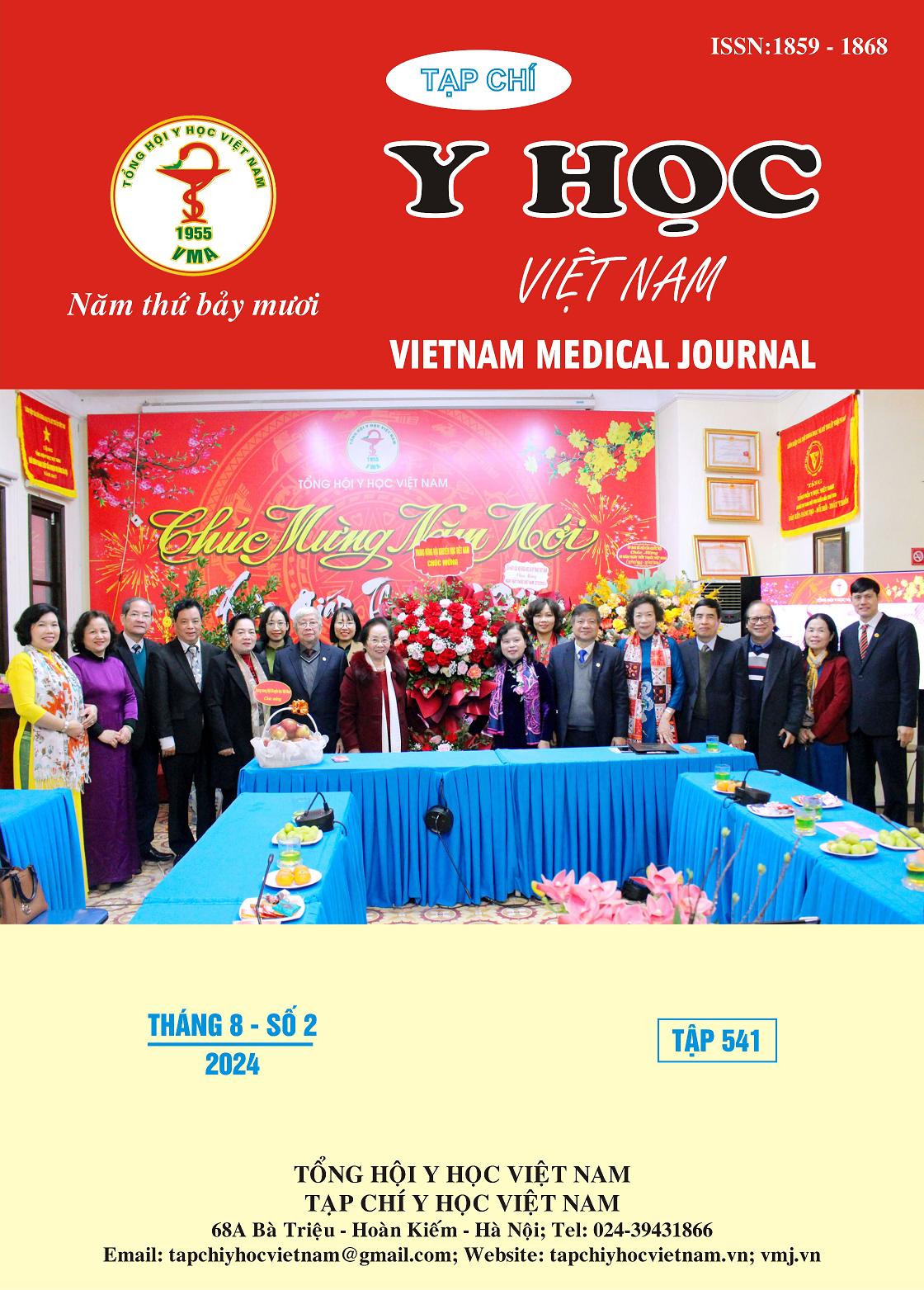RATE AND RISK FACTORS OF POSTSTROKE DEPRESSION
Main Article Content
Abstract
Background: Annually, around 16 million people worldwide experience their first stroke, with approximately 5.7 million deaths and about 12.6 million people left with moderate to severe disabilities following a stroke. Common complications of stroke include falls, pressure ulcers, urinary tract infections, pneumonia, depression, deep vein thrombosis, and pulmonary embolism. Among these, post-stroke depression is a prevalent and severe sequela of cerebrovascular accidents. Due to these reasons, in order to identify risk factors that can help predict and create early intervention plans to provide the best outcomes for patients, we conducted this study. Objectives: To determine the rate of post-stroke depression and identify some risk factors for post-stroke depression. Subjects and Methods: This is a prospective, cross-sectional descriptive study with analysis, conducted on stroke patients treated at the Neurology Department of Can Tho Central General Hospital. Results: After analyzing the combined data from 352 patients, the rate of post-stroke depression was found to be 22.4%. Two risk factors related to post-stroke depression were identified: gender and a history of smoking. The rate of post-stroke depression was higher in men than in women, with an OR=2.022 (95% CI: 1.19-3.436), p<0.05 using Fisher's exact test. Additionally, patients with a history of smoking were 2.402 times more likely to develop post-stroke depression compared to non-smokers (OR=2.402; 95% CI: 1.436-4.019) with p<0.001 using Fisher's exact test. No association was found between the type of stroke, the location of the lesion, and other factors related to post-stroke depression.
Article Details
Keywords
Stroke, post-stroke depression, risk factors for post-stroke depression
References
2. Đoàn Hữu Nhân (2019), Khảo sát tỉ lệ trầm cảm và các yếu tố liên quan trên bệnh nhân sau đột quỵ điều trị tài bệnh viện Nguyễn Tri Phương, Luận văn Thạc sĩ y học, Đại học Y Dược TP Hồ Chí Minh, TP Hồ Chí Minh.
3. Lê Cao Thái (2013), Đánh giá đặc tính tương đồng giữa giải phẫu thần kinh và trầm cảm sau đột quỵ nhồi máu não cấp., Luận án chuyên khoa cấp II, Đại học Y Dược TP Hồ Chí Minh, TP Hồ Chí Minh.
4. Ayasrah S. M., Ahmad M. M., Basheti I. A. (2018), "Post-Stroke Depression in Jordan: Prevalence Correlates and Predictors", J Stroke Cerebrovasc Dis, 27 (5), pp. 1134-1142.
5. Guo J., Wang J., Sun W., et al. (2022), "The advances of post-stroke depression: 2021 update", J Neurol, 269 (3), pp. 1236-1249.
6. Ishida Koto (2020), "Complications of stroke: An overview".
7. Zhang Y., Zhao H., Fang Y., et al. (2017), "The association between lesion location, sex and poststroke depression: Meta-analysis", Brain Behav, 7 (10), pp. e00788.


